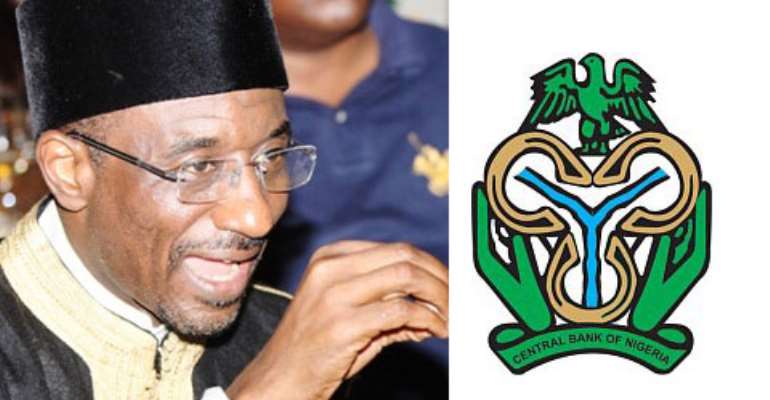MPC MEETS AGAINST FURTHER MONETARY TIGHTENING

By Babajide Komolafe
The Monetary Policy Committee (MPC) of the Central Bank of Nigeria (CBN) holds its bi-monthly meeting today amidst rising sentiments against further tightening of money supply.
The Committee meets to review the economy vis-a-vis the core mandate of the CBN, which is price stability and decide on necessary policy measures to influence money supply for the achievement of this mandate.
Last year, in order to curb inflation the MPC tightened money supply by raising its benchmark interest rate, the Monetary Policy Rate (MPR) six times from 6.25 per cent at the beginning of the year to 12 per cent in November. It also raised banks' Cash Reserve Requirement (CRR) three times from 1.0 per cent to 8.0 per cent; and their liquidity ratio (LR) once from 25.0 per cent to 30.0 per cent.
This resulted in steady increase in interest rate in the money markets from the region of six per cent to 15 per cent.
The Committee has met twice this year, in January and March, without adjusting the MPR, or adopting any measure to further tighten money supply. This was despite rise in inflation in March to 12.1 per cent. This trend, according to the National Bureau of Statistics (NBS) persisted in April as inflation rose to 12.9 per cent.
Lamido Sanusi, CBN governor
The Committee in January said, 'Staff estimates indicate that inflation in the first two quarters of 2012 would range between 11.0 per cent and 14.5 per cent, and then moderate steadily towards the single digit zone by late 2013.'
This could mean that the MPR might not be adjusted upward except rise in inflation exceeds these expectations. But going by the antecedents of last year, the MPC might adopt an attitude of 'a stitch in time saves nine', and decide to tighten money supply again. Adjusting the MPR upward to achieve this might be challenging for the Committee due to strong sentiments among economic operators against further tightening and increase in interest rates.
The general mood against further upward adjustment of the MPR was captured by Bismarck Rewane, MD/CEO of FDC, in his Monthly presentations on the economy at the Lagos Business School. 'CBN has very limited options. It cannot push rates up without hurting business', he said at the April edition.
The feeling of resentment among business owners against further monetary tightening was openly expressed by Shareholders at the annual general meeting of one of the banks last week. The Shareholders, notably, Mr Nonah Awoh and Chief Sunny Nwosu, President of Independent Shareholders Association of Nigeria (ISAN), complained against the cash reserve ratio of 8.0 per cent imposed on banks, saying that this is tantamount to tying down resources and discouraging investments.
In fact Nonah Awoh did not just complained, he mandated the non-executive directors to prevail on the CBN to relax its CRR and other mandatory deposits. That is why the expectation in the market is that MPC should allow the MPR and other monetary policy measures to remain as they are for now. Market operators said that since the April inflation figure is still within the expectation of the CBN, there is no need for further tightening now.
'MPC is expected to remain neutral in May,' said Rewane in his outlook for the MPC meeting. Razia Khan, Regional Head of Research, Africa, Standard Chartered Bank expressed the same sentiment in response to the March inflation figure.
She said, 'The current tight stance of policy should be sustained as there are evident inflation risks that should make the authorities cautious. This does not mean there is an argument for more tightening necessarily, just that with core inflation high, the current tight stance of monetary policy should be sustained.'
Definitely there would be argument for or against further tightening of the money supply among the nine MPC members today. The Committee members however also need to begin to debate the extent to which the MPR should be increased if inflation continues to rise and do so above the expected levels.
This is because with shareholders of banks complaining against high reserve requirements, and businesses crying out against high interest rates, it would be necessary to began to consider alternative policy measures to curb inflation other than jerking up the benchmark interest rate.
